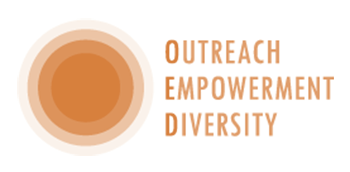A CASE STUDY FROM BELGIUM
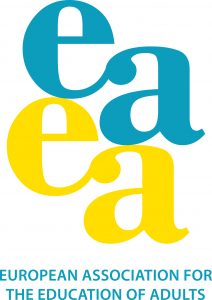
This case study from EAEA demonstrates an example of Empowerment in a project empowering young unemployed adults through the creation of an interactive map. Look particularly at the way the teacher has involved and engaged the young people and the creativity involved in the practice.
Objectif Ville
Objectif Ville is a project carried out by the Lire et Ecrire branch of Charleroi-Sud Hainaut in cooperation with the Open University of Charleroi (FUNOC). Its aim is to help young unemployed low-educated adults get ahead in life.
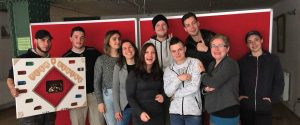 Within the framework of the project, eight free of charge courses are organised in the 2.5 years. Each course is 12 weeks long and targeted to young adults from 18 to 24 years old, who often have not completed formal education. The main goal of these courses is to engage participants to create an interactive map of the cities of Charleroi and Châtelet for their peers, but the competences that learners get are many.
Within the framework of the project, eight free of charge courses are organised in the 2.5 years. Each course is 12 weeks long and targeted to young adults from 18 to 24 years old, who often have not completed formal education. The main goal of these courses is to engage participants to create an interactive map of the cities of Charleroi and Châtelet for their peers, but the competences that learners get are many.
The project, which is financed with the support of the European Social Fund (ESF), is a great example of how the Outreach, Empowerment and Diversity guidelines can be implemented.
Aspects Of the guidelines covered
The first contact with potential learners is done through flyers and posters in the city, open days and the cooperation with other key actors (like the employment services).
The pre-development work that the trainer does is very impressive: she starts by analysing the learners’ needs, experiences and expectations. At the beginning of the course learners create a coat of arms, which is useful to boost the group’s identity.
Another very interesting feature of the classes is the presence of a former learner who is now studying to 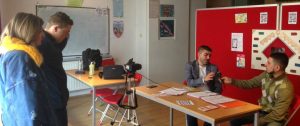 become a trainer herself and also volunteering in the project. The volunteer serves as a link between the trainer and the group, acts as a role model for the learners and provides constant support to the trainer.
become a trainer herself and also volunteering in the project. The volunteer serves as a link between the trainer and the group, acts as a role model for the learners and provides constant support to the trainer.
The learning situation is very positive: learners felt safe in the classroom and had a trustful relationship with the trainer. The atmosphere in the classroom is relaxed and joyful.
The content of these courses is varied and tailored. Learners do not only strengthen their basic skills, but also develop civic, personal and inter-personal capabilities through different hands-on activities, workshops and study visits. The creation of the interactive chart itself is a way to allow learners to explore their cities, develop their ICT skills and learn from other people’s lives and experiences.
The courses being only 12 weeks long, learners cannot afford to rely on this opportunity too much: they are encouraged from the very beginning to look beyond the course and take control of their future. In order to do so, the learners are guided to reflect on their learning and working paths and supported to create their CVs by the local employment service, which cooperates with the course providers. This approach ensures a positive transition after the course and encourage learners being protagonists in their lives and willing to take part in their society.
![]()
A CASE STUDY FROM SWEDEN

This Swedish example shows the balance between all the elements of outreach, empowerment and diversity, combined of necessity with the outcome of increased active citizenship. The example is in the context of welcoming refugees.
Färnebo Folk High School welcomes refugees
Successful learning creates change at the individual level and at the societal level.
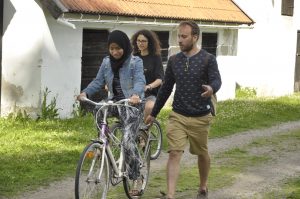 With outreach, empowerment, diversity as vital elements in learning for active citizenship Färnebo Folk High School in Sweden could play an active role in the process of welcoming 200 newly arrived refugees to the small village Gysinge where the folk high school is placed.
With outreach, empowerment, diversity as vital elements in learning for active citizenship Färnebo Folk High School in Sweden could play an active role in the process of welcoming 200 newly arrived refugees to the small village Gysinge where the folk high school is placed.
The school managed to engage the local inhabitants, the local civil society organisations, the teachers and the learners in different activities such as parties, a second hand shop and language cafés (diversity). The asylum home where the asylum seekers stayed was visited by staff from the folk high school with an invitation to participate in language cafés (outreach).The language cafés were organised by professional teachers. They planned the activities which also were led by students in the folk high school as a part of their learning (empowerment) and in addition volunteers, often retired teachers from the local village. Some refugees offered simple language training activities in their own language for Swedes (empowerment, diversity).
Impact
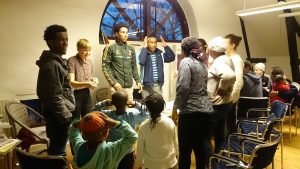 The local activities turned local opinion from a negative to a positive attitude towards the refugees. The refugees quickly became a part of the local society life and could begin their learning journey in the new country immediately. And for the ordinary students the welcoming process became a part of their own learning process.
The local activities turned local opinion from a negative to a positive attitude towards the refugees. The refugees quickly became a part of the local society life and could begin their learning journey in the new country immediately. And for the ordinary students the welcoming process became a part of their own learning process.
As part of the ImplOED project, this and other initiatives were disseminated and discussed in national seminars with providers, teachers and scientists. These initiatives impressed the Swedish government. Therefore, it created new funding for the folk high schools for organising more regular courses with newly arrived refugees called “Swedish from day one”, since August 2016.
Lessons learned
- For the institution and the teachers
- Arrange activities where locals can meet and learners in the institution can play active roles.
- The inclusive concept is to make it as simple as possible to participate for all at an initial stage.
- Engage in and learn more about what happens in the society where the institution is placed and/or, if possible, where the learners live their daily lives. Use that in the learning situations.
- Cultivate good relations with the local civil society organisations and local authorities.
- Be a positive force in the local society based on the UN Human Rights
